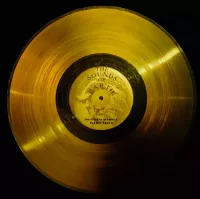Sunderland is a port city and metropolitan borough located in Tyne and Wear, England. Situated at the mouth of the River Wear on the North Sea, it lies approximately 10 miles southeast of Newcastle upon Tyne. Sunderland is the most populous settlement within the Wearside conurbation and the second most populous in North East England, trailing only Newcastle.
1900: Electric Tram System Built
From 1900, an electric tram system was built in Sunderland.
1904: Welsh Revival
During his ministry at Monkwearmouth in 1904, Alexander Boddy was influenced by the Welsh revival.
1905: Welsh Revival
During his ministry at Monkwearmouth in 1905, Alexander Boddy was influenced by the Welsh revival.
1907: Opening of the Sunderland Empire Theatre
In 1907, the Sunderland Empire Theatre opened on High Street West in the city centre.
1908: Sunderland's Central Fire Station
In 1908, Sunderland built its Central Fire Station which would be restored in 2017 and converted into a cultural hub.
1909: Queen Alexandra Bridge Built
In 1909, the Queen Alexandra Bridge was built, linking Deptford and Southwick.
April 1916: Zeppelin Raid on Monkwearmouth
On April 1, 1916, Monkwearmouth was struck by a Zeppelin raid, resulting in 22 deaths.
1919: Electric Tram System Completion
From 1900 to 1919, an electric tram system was built.
1921: Shipbuilding Decline Begins
In 1921, there were 15 shipyards on the Wear, marking the beginning of a dramatic decline in shipbuilding during the Great Depression.
1923: Peak Coal Mining Employment
In 1923, 170,000 miners were employed in County Durham alone, including Sunderland.
1928: Boundary Enlargement
In 1928, the borough boundaries were enlarged, gaining areas including Fulwell, Southwick, and the remainder of the old Bishopwearmouth parish.
1928: Opening of Ryhope Road Synagogue
In 1928, the synagogue on Ryhope Road opened.
1930: Death of Reverend Alexander Boddy
The Reverend Alexander Boddy, vicar of All Saints' Church, Monkwearmouth died in 1930.
1934: Henry Julian White's Description
In 1934, biblical scholar Henry Julian White described the Codex Amiatinus as the 'finest book in the world'.
1936: Sunderland AFC League Champions
By 1936 Sunderland AFC had been league champions on six occasions.
1936: Boundary Enlargement
In 1936, the borough boundaries were enlarged.
1937: Shipbuilding Decline Continues
By 1937, the number of shipyards on the Wear had decreased from 15 in 1921 to six, due to the Great Depression.
1939: Wear Yards Ship Launch
Between 1939 and 1945 the Wear yards launched 245 merchant ships totalling 1.5 million tons, a quarter of the merchant tonnage produced in the UK at this period.
1939: World War II Bombing
With the outbreak of World War II in 1939, Sunderland became a key target of the German Luftwaffe bombing.
1945: Wear Yards Ship Launch
Between 1939 and 1945 the Wear yards launched 245 merchant ships totalling 1.5 million tons, a quarter of the merchant tonnage produced in the UK at this period.
1951: Boundary Enlargement
In 1951, the borough boundaries were enlarged.
1954: End of Tram System
In 1954, the electric tram system in Sunderland was ended, having been gradually replaced by buses during the 1940s.
1958: Sunderland Relegation
In 1958 Sunderland A.F.C. were relegated.
1966: Sunderland Station Redesign
Sunderland station was completely redesigned for England's 1966 World Cup footfall to get to Roker Park.
1967: Boundary Enlargement
In 1967, the borough boundaries were enlarged, gaining North Hylton, South Hylton, Ryhope, Silksworth, and Tunstall.
1969: Sunderland Polytechnic Founded
Sunderland Polytechnic was founded in 1969.
1970: Civic Centre built
The Civic Centre on Burdon Road was built in 1970.
1972: Demolition of St John's Church
In 1972, St John's Church, which was built in 1769 as a chapel of ease within Holy Trinity parish, was demolished.
1974: Lower-Tier District Authority
From 1974, the borough council was a lower-tier district authority.
1974: Incorporation into Tyne and Wear
In 1974, Sunderland was incorporated into the ceremonial county of Tyne and Wear.
1974: Metropolitan Borough Established
In 1974, the county borough was replaced by a larger metropolitan borough within the new county of Tyne and Wear.
1976: Death of Sid James
In 1976, British comic actor Sid James died of a heart attack whilst on stage at the Sunderland Empire Theatre.
1980: The Bunker founded as a youth project
In 1980, The Bunker was founded as a youth project.
July 1983: Menorah School Closed
In July 1983, the Jewish primary school, the Menorah School, closed.
1983: The Bunker settles in its current home
In 1983, The Bunker settled in its current home, it allows new music talent can practice and perform in the same building.
December 1984: Nellie the Elephant by the Toy Dolls
In December 1984, the punk rockers the Toy Dolls released the song "Nellie the Elephant".
1986: Nissan Factory Opens
In 1986, Japanese car manufacturer Nissan opened its Nissan Motor Manufacturing UK factory in Washington.
1986: County Council Abolished
In 1986, Tyne and Wear County Council was abolished, with the borough council taking on county-level functions.
1987: Sunderland Relegation
In 1987 Sunderland A.F.C. were relegated to the third tier of English football.
June 1988: Yeshiva Moved to Gateshead
In June 1988, the yeshiva moved to Gateshead.
December 1988: John Kettley is a Weatherman by A Tribe of Toffs
In December 1988, A Tribe of Toffs released the song "John Kettley is a Weatherman".
December 1988: Last Sunderland Shipyard Closes
The last shipyard in Sunderland closed on 7 December 1988.
1988: End of Shipbuilding
In 1988, shipbuilding ended in Sunderland.
1990: Riverbank Regeneration Begins
From 1990, the Wear's riverbanks were regenerated with new housing, retail parks and business centres on former shipbuilding sites.
1992: University Status Achieved
In 1992, Sunderland Polytechnic became the University of Sunderland.
1992: City Status Granted
In 1992, the borough of Sunderland was granted city status.
1992: Wearmouth Hall Closure
In 1992, the former students' union Wearmouth Hall closed after hosting music bands.
1992: Central Fire Station Vacant
Since 1992, Sunderland's Central Fire Station became vacant until it was restored in 2017.
1993: End of Coal-Mining
In 1993, coal-mining ended in Sunderland.
1993: Britain in Bloom Award
In 1993, the city's parks received the Britain in Bloom collective award.
1994: Last Coal Mine Closes
The last coal mine in Sunderland closed in 1994.
May 1997: You're Not Alone by Ruth Ann Boyle
In May 1997, Ruth Ann Boyle, the lead singer of dance outfit Olive, released the song "You're Not Alone".
1997: Stadium of Light Opens
In 1997, Sunderland AFC moved to the 42,000-seat Stadium of Light.
1997: Opening of the Stadium of Light
In 1997, the 49,000-seat Stadium of Light opened as the home of Sunderland A.F.C.
1997: Britain in Bloom Award
In 1997, the city's parks received the Britain in Bloom collective award.
1998: Sunderland Minster Redesignated
In 1998, following the grant of city status to Sunderland, the erstwhile parish church of Bishopwearmouth (St Michael's) was redesignated as Sunderland Minster.
1998: National Glass Centre Opens
The National Glass Centre opened in 1998, reflecting Sunderland's distinguished history of glass-making.
May 1999: Park Lane Interchange Opens
On 2 May 1999, a multimillion-pound transport interchange at Park Lane was opened by the then Brookside actor Michael Starke.
July 1999: Vaux Brewery Closes
In July 1999, Vaux Breweries in Sunderland closed after 110 years as a major employer.
1999: Vaux Brewery Closure
In July 1999, the Vaux brewery in Sunderland closed after 110 years of operation, leaving a 26-acre brownfield site dormant in the centre of the city.
2000: Neolithic Period Activity
Around 2000 BC, during the final phase of the Stone Age, Hastings Hill was a focal point of activity, serving as a place of burial and ritual significance.
2000: Bridges Shopping Centre Extended
In 2000, the Bridges shopping centre in Sunderland was extended towards Crowtree Road and the former Central Bus Station, attracting national chain stores. This was followed by adjacent redevelopments on Park Lane.
2000: Britain in Bloom Award
In 2000, the city's parks received the Britain in Bloom collective award.
2000: Swallow Group Takeover
In the autumn of 2000, The Swallow Group (formerly Vaux Group) was subject to a successful take-over by Whitbread PLC.
2001: Tesco Buys Vaux Site
In 2001, supermarket chain Tesco bought the site of the former Vaux brewery in Sunderland.
2001: Jewish Population in 2001
In 2001, the Jewish population fell to 114 people.
2001: Best New University
Since 2001 Sunderland has been named the best new university in England by The Guardian and Government performance indicators showed Sunderland as the best new university in England for the quality, range and quantity of its research.
2002: Sunderland Arc Redevelopment Plans
In 2002, Sunderland arc submitted plans for the redevelopment of the former Vaux brewery site in Sunderland.
2002: Metro Integration
In 2002, Sunderland station became part of the Tyne & Wear Metro.
2002: New Metro Station Built
In 2002, a new Metro station was built underneath the bus concourse to provide a direct interchange as part of the extension to South Hylton.
December 2003: Sunderland's inaugural film festival
In December 2003, Sunderland's inaugural film festival took place at the Bonded Warehouse building on Sunderland riverside. It featured films of local and aspiring directors as well as re-showings of acclaimed works, such as Alan Bleasdale's The Monocled Mutineer, accompanied by analysis.
2003: Snooker World Trickshot and Premier League Final
In 2003, the Crowtree Leisure Centre played host to a Snooker World Trickshot and Premier League Final.
March 2004: Benedict Biscop Adopted as Patron Saint
On March 24, 2004, the city adopted Benedict Biscop as its patron saint.
2004: Sunderland Named Intelligent City
In 2004, Sunderland was named in the shortlist of the top seven "intelligent cities" in the world for its use of information technology.
2004: Sunniside Redevelopment Begins
In 2004, redevelopment work began in the Sunniside area in the east-end of the Sunderland city centre, including a multiplex cinema, a multi-storey car park, restaurants, a casino and tenpin bowling.
2004: Refurbishment of the Sunderland Empire Theatre
In 2004, the Sunderland Empire Theatre completed a comprehensive refurbishment.
January 2005: Second Sunderland Film Festival
In January 2005, the second Sunderland film festival commenced on 21 January. A new cinema multiplex had opened in Sunderland to provide a venue which allowed the festival to showcase over twenty films.
May 2005: BBC Radio 1's Big Weekend concert
In May 2005, Sunderland hosted BBC Radio 1's Big Weekend concert at Herrington Country Park, attended by 30,000 visitors and which featured many music groups.
September 2005: International boxing bouts
In September 2005, BBC TV cameras captured international boxing bouts featuring local boxers David Dolan, Stuart Kennedy and Tony Jeffries.
2005: Sharon Hodgson Elected
As of 2005 Sharon Hodgson is a Labour Member of Parliament for Sunderland in the House of Commons.
2005: Gavin Massingham at the AAA Championships
In 2005, 800 m runner Gavin Massingham represented the Sunderland Harriers Athletics Club at the AAA Championships.
2005: Sunderland Named Intelligent City
In 2005, Sunderland was again named in the shortlist of the top seven "intelligent cities" in the world for its use of information technology.
2005: River Quarter Renamed Limelight
Originally the River Quarter, the site in Sunniside, Sunderland was renamed Limelight in 2005.
March 2006: Synagogue Closure
The synagogue on Ryhope Road, opened in 1928, closed at the end of March 2006.
June 2006: First Great Women's Run
On 25 June 2006, the first Great Women's Run took place along Sunderland's coastline, featuring Olympic silver medallists.
2006: Largest Remembrance Day Service
In 2006, the Remembrance Day memorial service in Sunderland was the largest in the UK outside London.
2006: Top Student Experience
The University of Sunderland was named the top university in England for providing the best student experience by The Times Higher Education Supplement (THES) in 2006.
January 2007: Pyrex Manufacturing Site Closure
In January 2007, the Pyrex manufacturing site in Sunderland also closed, bringing to an end commercial glass-making in the city.
March 2007: Corning Glass Works Closure
On 31 March 2007, Corning Glass Works in Sunderland closed after 120 years of operation.
2007: Arc's Plans Approved
In 2007, Arc's plans for the former Vaux brewery site in Sunderland were approved by the Secretary of State. The plans included extensive office space, hotels, leisure and retail units, residential apartments and a new Crown and Magistrates' court.
2007: Bryan Talbot's graphic novel Alice in Sunderland
In 2007, Bryan Talbot's graphic novel "Alice in Sunderland" documented Lewis Carroll's connection with Sunderland and the area's history.
2007: Echo 24 Apartments Open
In 2007, the Echo 24 luxury apartments opened on Pann's Bank in Sunderland, overlooking the river.
2007: Great Women's Run
In 2007, the Great Women's Run took place along Sunderland's coastline.
April 2008: Opening of the Sunderland Aquatic Centre
On 18 April 2008, the Sunderland Aquatic Centre was opened. Constructed at a cost of £20 million, it is the only Olympic sized 50 m pool between Leeds and Edinburgh and has six diving boards.
September 2008: St Peter's Sixth Form College Opens
In September 2008, St Peter's Sixth Form College opened in Sunderland.
2008: Northern Spire Bridge Design Vote
In 2008, Sunderland City Council offered the residents of Sunderland the opportunity to vote on the design of the Northern Spire Bridge.
2008: Tony Jeffries wins Olympic bronze
In 2008, Tony Jeffries became Sunderland's first Olympic medallist when he won a bronze medal in the light heavyweight boxing category at the Beijing Olympic Games.
2008: Great Women's Run
In 2008, the Great Women's Run took place along Sunderland's coastline.
2008: Limelight Renamed Sunniside Leisure
In 2008, the Limelight site in Sunniside, Sunderland was renamed Sunniside Leisure.
2008: Sunderland Aquatic Centre Opens
In 2008, the Sunderland Aquatic Centre opened adjacent to the Stadium of Light in Sunderland.
2009: Campus nightclub
In 2009, The Manor Quay' the students' union nightclub on St Peter's Riverside at the University of Sunderland, was taken into private ownership under the name Campus and hosted musical acts.
2009: Great North 10K Run
In 2009, the race was relaunched as the Great North 10K Run, allowing male competitors to take part for the first time, on 12 July.
2009: Sunderland: Live in the city
Since 2009, Sunderland: Live in the city has played host to a series of free and ticketed live music events throughout venues in the city centre.
2010: Arc Hope to Begin Development
Arc originally hoped to begin development of the former Vaux brewery site in Sunderland in 2010.
2011: First Sunderland City 10 km
In 2011, the first Sunderland city 10 km was held, with just over 1500 participants.
2011: 2011 Census and Built-up Area Definition
The 2011 census defined a much larger Sunderland built-up area.
2011: 2011 Census Religion Data
The 2011 census recorded the religious affiliations of the population.
2012: Car Production Numbers
As of 2012, the Nissan factory in Sunderland produced over 500,000 cars annually, making it the UK's largest car factory.
2013: Keel Square Project Announced
In 2013, Sunderland City Council announced the Keel Square project in the area opposite the Vaux site, a new public space designed to commemorate Sunderland's maritime heritage.
2013: Pop Recs Ltd opens
In 2013, local band Frankie and The Heartstrings opened a temporary pop up record store in the city, Pop Recs Ltd. It was only intended to remain open for a fortnight, but it remains open and has hosted live performances.
March 2014: Metro Extension Proposed
In March 2014, Metro owner Nexus proposed an extension of the network by an 'on-street' tram link which would connect north to South Shields and Doxford Park to the west.
2014: Part of North East Combined Authority
Between 2014, Sunderland was part of the North East Combined Authority.
2014: Keel Square Construction Commences
In 2014, construction commenced on the Keel Square project in Sunderland.
May 2015: Keel Square Completed
In May 2015, the Keel Square project was completed in Sunderland.
2016: Brexit Referendum Vote
In 2016, Sunderland voted for Brexit in the referendum on European Union membership by 61% of the vote.
2016: Establishment of the Music Cities Network
In 2016, the Music Cities Network was established to connect cities worldwide to promote the music industry's growth, economic development, and cultural exchange.
January 2017: City Library Arts Centre Closure
In January 2017, the City Library Arts Centre on Fawcett Street closed in Sunderland. The library service was relocated to the Museum and Winter Gardens and the Gallery for Contemporary Art transferred to Sunderland University.
2017: Restoration of Sunderland's 1908 Central Fire Station
In 2017, the Sunderland MAC Trust restored Sunderland's 1908 Central Fire Station, vacant since 1992, and converted it into a cultural hub.
2018: Sunderland Relegation
In 2018 Sunderland A.F.C. suffered relegation to the third tier of English football.
2018: City Ranked Best to Live and Work
In 2018, Sunderland was ranked as the best city to live and work in the UK by the finance firm OneFamily.
2019: Sunderland's fan base in 2019
In 2019, it was reported that despite being in League One, Sunderland's average gates were higher than those of such teams as Lyon, Napoli, Roma, Valencia, Juventus, and Porto.
2020: Bridget Phillipson Elected
As of 2020 Bridget Phillipson is a Labour Member of Parliament for Sunderland in the House of Commons.
December 2021: Opening of the Fire Station auditorium
In December 2021, the Fire Station auditorium, a 500 seat/800 standing venue attached to the restored building, opened.
2021: 2021 Census Population
At the 2021 census, the built-up area of Sunderland had a population of 168,315, and the wider borough had a population of 274,200.
2021: Sunderland City Runs
By 2021 the Sunderland City Runs welcomed 4000 participants to the city streets in a celebration of running across a range of distances.
2021: Jewish Population in 2021
In 2021, the Jewish population fell to 87 people.
2021: City Hall Opens
In 2021, the city council is based at City Hall on Plater Way (formerly the site of the Vaux Brewery).
2022: Kiaran MacDonald's Achievements
In 2022, Kiaran MacDonald won a silver at both the European Championships and Commonwealth Games.
2022: Sunderland AFC
Since the 2022-23 season, Sunderland A.F.C. has played in the EFL Championship.
2022: Last Sunderland International Airshow
Up until 2022, the city hosted the Sunderland International Airshow.
July 2023: World Triathlon Championship Series in Sunderland
In July 2023, the British leg of the 2023 World Triathlon Championship Series was hosted in Sunderland, with triathletes from around the world participating.
March 2024: Crown Works Studios given government backing
In March 2024, Crown Works Studios received government backing to facilitate job creation in the North East of England, as part of a regeneration scheme in Wearside.
2024: Lewis Atkinson Elected
As of 2024 Lewis Atkinson is a Labour Member of Parliament for Sunderland in the House of Commons.
2024: Member of North East Mayoral Combined Authority
Since 2024, the council has been a member of the North East Mayoral Combined Authority.
January 2025: Sunderland joins Music Cities Network
In January 2025, Sunderland Music City was successfully added to the Music Cities Network, becoming the second city in the UK, after Manchester, to join the network.
Mentioned in this timeline
The Guardian is a British daily newspaper founded in as...
World War II - was a global conflict between the...

Football is a family of team sports primarily involving kicking...

A car also known as an automobile is a wheeled...

Elephants are the largest land animals on Earth with three...

Music is a cultural universal involving the arrangement of sound...
Trending
28 days ago Tosh Lupoi Expected to Become Cal's New Head Coach From Oregon
William Will Stein is an American football coach currently serving as the offensive coordinator and quarterbacks coach at the University...
3 months ago Jeff Hiller's Rise: From Comedy to Emmy Glory and Stern Show Debut.
Kenyon Sadiq is an American college football player who plays tight end for the Oregon Ducks As a collegiate athlete...

Hoda Kotb is a prominent American broadcast journalist television personality and accomplished author She held the position of main co-anchor...
10 months ago Mississippi Hit by Deadly Tornadoes and Earthquake; Six Deaths Reported Statewide
Popular

Stranger Things created by the Duffer Brothers is a popular...

XXXTentacion born Jahseh Dwayne Ricardo Onfroy was a controversial yet...
Turning Point USA TPUSA is an American nonprofit organization founded...

Candace Owens is an American conservative political commentator and author...

Melania Trump a Slovenian-American former model has served as First...

Bernie Sanders is a prominent American politician currently serving as...
